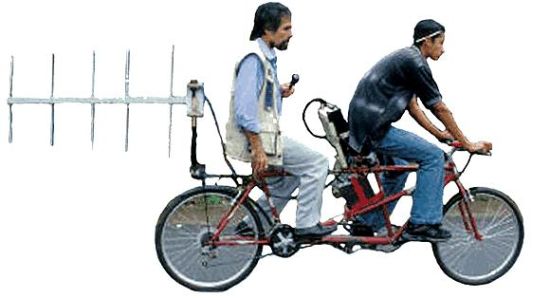
Here is another unique attempt at making the world a smaller place and to make the Internet more accessible.
The product in discussion is a bicycle in operation at Caqueta, Colombia, which seats two and carries with it a complete radio broadcasting system, able to send out Wi-max signals and can be heard not only through the Andaqui Community Radio, but live through Internet as well. The features of this innovative product sound too good to be true. It is :
– Eco-friendly
– Human instead of fuel powered
– Allows for innovation and investigation
– Can reach many different places
– Can be brought inside homes
– Brings people together, working as members of a team.
– Cheap to maintain
– Sustainable
The tele-situation in Bangladesh has improved dramatically. The superb growth of the mobile phone companies has influenced the number of mobile phone users in Bangladesh to rise to 32 million in only a few years’ span and brought about almost 25% growth rate in the cell phone industry. The common man of Bangladesh is now conveniently connected to the world through telecentres and internet cafes which would not have been possible with the current network of traditional landphones or expensive dsl cable connections. Some of the operators even support EDGE technology which offers data transfer speeds of up to 128 kb/s.
The technology behind Internet kiosk is very simple. “There’s only one PC, which functions as a server: each of the other workstations is powered by a small device, not much bigger than a cigarette packet. For another, there’s no wired connection between the server and the outside world. The clue to how it’s done is provided by a Motorola clamshell mobile phone connected by a USB cable to the server. The Centre is getting its Internet connection via an Edge-enabled mobile phone!”
Using Ndiyo-type thin-client networking in combination with Open Source software dramatically reduces the Total Cost of Ownership of Internet cafes, networked classrooms and small office systems. In the process, it makes it possible for entrepreneurs like Abu Sufian, the proprietor of the Fultola CIC, to make investments which earn revenues for them by providing services to local people and organizations.
This technology, if properly executed, will change the entire face of communication in developing countries.
Via: Rising Voices




